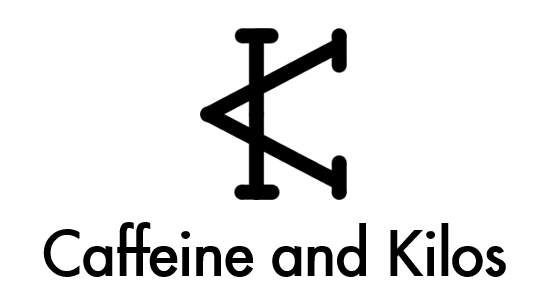
Here's Everything you need to know about Decaf Coffee
Share
Many coffee enthusiasts see decaf coffee as pointless. If it’s decaffeinated, then what’s the point? The point is the decaf coffee is still coffee! We like the taste of our morning brew; low caffeine in decaf coffee can make for a nice afternoon treat. Plus, there are many health benefits of decaf coffee. So, what is decaf coffee, is decaf coffee good for you, and does decaf contain caffeine? We cover all these questions and more. Here is everything you need to know about decaf coffee!
What is Decaf Coffee?
It might seem like an illogical question on the surface: what is decaf coffee? However, the vanswer is a bit more complex than saying it’s just coffee sans caffeine. Caffeine is a naturally occurring compound found in coffee beans. There are very few decaf coffee beans that grow naturally.
In 2004, botanists discovered that 3 of the 600+ arabica plants were missing an enzyme that caused the plant to produce caffeine. However, cultivators found mass-producing caffeine-free coffee beans proved costly. All attempts to make this endeavor a business were dropped. So, 99.9% of the decaf coffee beans you buy goes through a decaffeination process.
How Are Decaf Coffee Beans Made?
There are four ways that manufacturers process decaf coffee beans. No matter which method is used, they begin with green coffee beans. These beans are submerged in water and a stripping agent. Together, they remove caffeine from the bean, making decaf coffee beans. From there, the beans are either sold as a whole bean or ground into a powder to make instant decaf coffee.
While there are four ways to process decaf coffee beans, they are broken down into two types of methods--solvent and non-solvent. The ingredients in each process are added to water because water on its own would strip the decaf coffee beans of sugars and proteins. On its own, water would severely deplete the health benefits of decaf coffee.
Adding these stripping agents speed up the process. However, some of these methods come with a red flag. Let’s discuss the difference between these methods, as well as the pros and cons.
Solvent-Based Decaffeinated Coffee
The word solvent is a fancier way of saying “chemical.” There are two chemicals that are used in the decaffeination process that are labeled safe by the Food and Drug Administration (FDA). These compounds are methylene chloride and ethyl acetate.
Health enthusiasts believe ethyl acetate is the best decaf coffee option of the two. That’s because this molecule naturally occurs in fruits, such as blackberries.
If you see decaf coffee beans labeled “naturally decaffeinated,” ethyl acetate was used. Meanwhile, the methylene chloride solvent is man-made. Solvent-based decaf coffee beans are created in two different ways. Let’s discuss both of these methods.
Indirect Solvent Process
This process soaks coffee beans in near-boiling water for many hours. Many of the flavors and oils leech into the water. The water is segregated from the beans and washed with the solvent. Solvent minerals will bind to the caffeine molecules. From there, the mixture is heated so that the solvents and caffeine boil off.
Afterward, the coffee beans are soaked in the remaining liquid. That causes the decaf coffee beans to retain much of the original flavor of the arabica bean.
Direct Solvent Process
Here, the coffee beans get steamed for 30 minutes. Much like our pores after a long shower, the beans will open up. Once this happens, the beans get repeatedly rinsed with a solvent. This process takes up to ten hours.
Once the time is up, the solvent gets drained away. The decaf coffee beans get steamed again, so residual solvent dissipates.
Non-Solvent Based Decaffeinated Coffee
These methods are healthier alternatives to the chemical solvent processes. They use all-natural ingredients to decaffeinate the coffee bean. These two processes are the Swiss-Water Process and carbon dioxide process.
Swiss-Water Process (SWP)
SWP was founded in Switzerland. Presently, the Swiss are home to the only certified-organic SWP facility in the world. This process is entirely chemical-free and probably maintains the health benefits of decaf coffee. That's why many believe this process makes for the best decaf coffee.
Arabica beans get soaked in very hot water so that the caffeine dissolves. Next, the water gets forced through an activated charcoal filter. These filters will capture any large caffeine particles. However, essential oils and antioxidants can make their way through the screen to enrich the decaf coffee beans.
What's great about this process is that in one portal, you will get green coffee extract. In the other, you get the flavoring for your decaf coffee beans. This water is then recycled and used to strip the caffeine from the next batch of coffee beans. Therefore, each bean that goes through the process will be treated with water naturally enriched with the health benefits of decaf coffee.
Carbon Dioxide Process
Of the four methods of making decaf coffee beans, this is the newest of the bunch. Coffee beans get soaked in water and then placed into an extractor vessel made of stainless steel. From there, the vessel gets sealed shut.
Liquid carbon dioxide gets pumped into the vessel, creating immense pressure on the beans. This pressure causes the beans to crack, secreting caffeine into the atmosphere. Carbon in the carbon dioxide binds to caffeine. So, the twosome gets transferred into another chamber.
In the next chamber, the pressure drops. Slowly, carbon dioxide leaves the environment. You are left with caffeine. The carbon dioxide is then pumped into a pressurized container for future extractions.
Is Decaf Coffee Good For You?
A lot of work goes into making decaf coffee beans. That means a lot of processing. Therefore, many health aficionados are a bit hesitant to reap the benefits of decaf coffee.
These concerns are especially true when it comes to solvent-based decaffeinated coffee. Solvents can end up binding to other parts of the bean, resulting in the drinker ingesting them.
While these concerns are genuine, let us put some of these worries to rest. The majority of these compounds die off in the roasting process. You must roast coffee beans between 356°F and 401°F. Methylene chloride vaporizes at just 104°F. So, we wouldn’t lose sleep over decaf coffee...literally, because of the low caffeine levels.
How Much Caffeine In Decaf Coffee?
Is there any caffeine in decaf coffee? Technically, yes. Caffeine naturally occurs in arabica beans. So, it’s impossible to get rid of all the caffeine in decaf coffee.
The amount of caffeine in decaf coffee will vary from bean to brand. Most decaf coffee beans have about 97% of the caffeine removed. In general, there are between 0-7mg of caffeine in a cup of decaf caffeine. When you compare that to the 70-140mg in a cup of regular coffee, decaf has a significant amount less.
Decaf coffee is a great option for people who are looking to cut down on their caffeine intake. Just the flavor alone can create a placebo effect that makes you feel energized. Plus, the small doses of caffeine in decaf coffee doesn’t hurt. So, if you’re looking to cut back, consider drinking a cup of regular in the morning with higher caffeine content. Drink Caffeine & Kilos PR Blend.
This light-medium roast contains 50% more caffeine than a regular cup of coffee. Instead of having four cups of your everyday brand, one cup of Caffeine & Kilos PR Blend will hold you over. Then you can ride the wave with a cup of decaf coffee in the afternoon.
Benefits of Decaf Coffee
There aren't many studies on the health benefits of decaf coffee. That's because most studies are done on the bean as it's naturally harvested. However, one study did find that decaf coffee can reduce the chances of mortality and the risk of cardiovascular disease.
Since decaf has this in common with its caffeinated counterpart, it's safe to assume that the health benefits of decaf coffee include:
As you can see, coffee is a healthy beverage, caffeine or not. However, is decaf coffee better for you? Not necessarily. Let’s take a closer look.
Is Decaf Coffee Better For You Than Regular?
Decaf coffee has many of the nutrients found in caffeinated. However, caffeine plays a big role in the health benefits of black coffee. While there is some caffeine in decaf coffee, there isn’t enough to stimulate sustained concentration.
Furthermore, it may not have all of the weight loss benefits associated with caffeine. Nor, should decaf coffee beans have the relaxing effects on blood cells traveling through clogged arteries that caffeine does.
Lastly, the water and chemicals strip more than just caffeine from the bean. A lot of sugars, polyphenols, and proteins are washed away. So, the antioxidants and nutrients in decaf coffee beans should be less.
With that said, the calories in decaf coffee are the same as its counterpart. If you prefer a less bitter coffee, decaf is a little smoother. That’s because many of the compounds that give regular coffee its bite are no longer present. So, some might enjoy the taste of decaf coffee better. However, the health benefits of decaf coffee don’t seem to stack up.
Best Decaf Coffee: Instant Decaf Coffee or Beans?
Picking the best decaf coffee is a matter of preference. The health benefits of decaf coffee can diminish with instant decaf coffee. That’s because the item has been processed numerous times.
The beans went through the decaffeination process, were ground, and then packaged. That allows for a lot of the nutrients to die off. Plus, there’s no bean to hold in the nutrients. So, they oxidize within the package. With that said, instant decaf coffee is excellent for when you’re in a time pinch and just need to pour in hot water and go.
Now that you know a bit more about what is decaf coffee, you can see the best decaf coffee is one where decaf coffee beans are processed with SWP or carbon dioxide. These methods retain the flavor and health benefits of decaf coffee.


108 comments
https://github.com/youranreus/G/issues/125
https://github.com/youranreus/G/issues/122
https://github.com/MiRO92/uYou-for-YouTube/issues/514
https://github.com/voidint/g/issues/153
https://github.com/mit-pdos/xv6-riscv/issues/327
https://github.com/youranreus/G/issues/126
https://github.com/youranreus/G/issues/127
https://github.com/selfteaching/the-craft-of-selfteaching/issues/1206
https://suvanabhumi168.graphy.com/courses/DiamondLottoo7168
https://suvanabhumi168.graphy.com/courses/RuayDiamond168V1
https://suvanabhumi168.graphy.com/courses/Ruayy44Diamond168
https://patcharapdiamond168.graphy.com/courses/DiamondRray789168
https://patcharapdiamond168.graphy.com/courses/DiamondHaty168Seo
https://patcharapdiamond168.graphy.com/courses/DHSeo168Diamond
https://github.com/youranreus/G/issues/125
https://github.com/youranreus/G/issues/122
https://github.com/MiRO92/uYou-for-YouTube/issues/514
https://github.com/voidint/g/issues/153
https://github.com/mit-pdos/xv6-riscv/issues/327
https://github.com/youranreus/G/issues/126
https://github.com/youranreus/G/issues/127
https://github.com/selfteaching/the-craft-of-selfteaching/issues/1206
https://suvanabhumi168.graphy.com/courses/DiamondLottoo7168
https://suvanabhumi168.graphy.com/courses/RuayDiamond168V1
https://suvanabhumi168.graphy.com/courses/Ruayy44Diamond168
https://patcharapdiamond168.graphy.com/courses/DiamondRray789168
https://patcharapdiamond168.graphy.com/courses/DiamondHaty168Seo
https://patcharapdiamond168.graphy.com/courses/DHSeo168Diamond
https://github.com/defunkt/ambitious_activeldap/issues/14
https://paste.kodi.tv/luhudenora
https://github.com/shuup/shuup/discussions/2648
https://www.openlink.co/hil0thai168
https://www.openlink.co/pggame168
https://diamond777.graphy.com/courses/Diamondba168th
https://diamond777.graphy.com/courses/DiamondBarca168TH
https://diamond777.graphy.com/courses/BaDiamond168zaThailandNo1MKT
https://diamond777.graphy.com/courses/DiamondSeoNo1Ba
https://suvanabhumi168.graphy.com/courses/DiamondLottoo7168
https://suvanabhumi168.graphy.com/courses/RuayDiamond168V1
https://suvanabhumi168.graphy.com/courses/Ruayy44Diamond168
https://patcharapdiamond168.graphy.com/courses/DiamondRray789168
https://patcharapdiamond168.graphy.com/courses/DiamondHaty168Seo
https://patcha
https://github.com/EllanJiang/GameFramework/issues/76
https://github.com/gzc/isystem/issues/1
https://github.com/cy4nguy/PythonSimpleKeylogger/issues/3
https://github.com/openai/sparse_attention/issues/13
https://github.com/dashpradeep99/https-github.com-miguellgt-books/issues/6
https://github.com/Programming-from-A-to-Z/A2Z-F15/issues/30
https://github.com/HoyDiamond/DiamondSeo01/issues/1
https://github.com/henryjeff/portfolio-website/issues/16
https://github.com/zquestz/s/issues/189
https://github.com/segmentio/ksuid/issues/86
https://github.com/selfteaching/the-craft-of-selfteaching/issues/1208
https://github.com/ccg2018/ClashA/issues/50
https://github.com/frankstar007/kNN/issues/2
https://github.com/xiesuichao/KLineView/issues/36
https://github.com/LeeJunHyun/Image_Segmentation/issues/99
https://github.com/selfteaching/the-craft-of-selfteaching/issues/1204
https://github.com/udlbook/udlbook/issues/275
https://github.com/selfteaching/the-craft-of-selfteaching/issues/1208
https://github.com/78ResearchLab/PoC/issues/4
https://github.com/ldlqdsdcn/eidea4/issues/6
https://github.com/OpenLake/Virtual-IIT-Bhilai/issues/10#issue-3027262119
https://github.com/yixuan/LBFGSpp/issues/44
https://github.com/xFreed0m/RDPassSpray/issues/18
github.com/JapanExchangeGroup/J-Quants-Tutorial/issues/47
https://gist.github.com/Worawongkunakorn789/e93395a5e3649260270675a8ef6fbdcc
https://github.com/ycm-core/YouCompleteMe/issues/4300
https://github.com/svendiedrichsen/jollyday/issues/185#issue-3027787677
https://github.com/github-tooling/ghtopdep/issues/38
https://github.com/trumank/drg-custom-difficulties/issues/17
https://github.com/mausworks/tyin/issues/14
https://github.com/jkiprono2
3/jkiprono23/issues/1https://github.com/OpenLake/Virtual-IIT-Bhilai/issues/10#issue-3027262119
https://github.com/yixuan/LBFGSpp/issues/44
https://github.com/xFreed0m/RDPassSpray/issues/18
github.com/JapanExchangeGroup/J-Quants-Tutorial/issues/47
https://gist.github.com/Worawongkunakorn789/e93395a5e3649260270675a8ef6fbdcc
https://github.com/ycm-core/YouCompleteMe/issues/4300
https://github.com/svendiedrichsen/jollyday/issues/185#issue-3027787677
https://github.com/github-tooling/ghtopdep/issues/38
https://github.com/trumank/drg-custom-difficulties/issues/17
https://github.com/mausworks/tyin/issues/14
https://github.com/jkiprono2
3/jkiprono23/issues/1https://github.com/OpenLake/Virtual-IIT-Bhilai/issues/10#issue-3027262119
https://github.com/yixuan/LBFGSpp/issues/44
https://github.com/xFreed0m/RDPassSpray/issues/18
github.com/JapanExchangeGroup/J-Quants-Tutorial/issues/47
https://gist.github.com/Worawongkunakorn789/e93395a5e3649260270675a8ef6fbdcc
https://github.com/ycm-core/YouCompleteMe/issues/4300
https://github.com/svendiedrichsen/jollyday/issues/185#issue-3027787677
https://github.com/github-tooling/ghtopdep/issues/38
https://github.com/trumank/drg-custom-difficulties/issues/17
https://github.com/mausworks/tyin/issues/14
https://github.com/jkiprono2
3/jkiprono23/issues/1https://github.com/OpenLake/Virtual-IIT-Bhilai/issues/10#issue-3027262119
https://github.com/yixuan/LBFGSpp/issues/44
https://github.com/xFreed0m/RDPassSpray/issues/18
github.com/JapanExchangeGroup/J-Quants-Tutorial/issues/47
https://gist.github.com/Worawongkunakorn789/e93395a5e3649260270675a8ef6fbdcc
https://github.com/ycm-core/YouCompleteMe/issues/4300
https://github.com/svendiedrichsen/jollyday/issues/185#issue-3027787677
https://github.com/github-tooling/ghtopdep/issues/38
https://github.com/trumank/drg-custom-difficulties/issues/17
https://github.com/mausworks/tyin/issues/14
https://github.com/jkiprono2
3/jkiprono23/issues/1https://github.com/OpenLake/Virtual-IIT-Bhilai/issues/10#issue-3027262119
https://github.com/yixuan/LBFGSpp/issues/44
https://github.com/xFreed0m/RDPassSpray/issues/18
github.com/JapanExchangeGroup/J-Quants-Tutorial/issues/47
https://gist.github.com/Worawongkunakorn789/e93395a5e3649260270675a8ef6fbdcc
https://github.com/ycm-core/YouCompleteMe/issues/4300
https://github.com/svendiedrichsen/jollyday/issues/185#issue-3027787677
https://github.com/github-tooling/ghtopdep/issues/38
https://github.com/trumank/drg-custom-difficulties/issues/17
https://github.com/mausworks/tyin/issues/14
https://github.com/jkiprono2
3/jkiprono23/issues/1https://github.com/OpenLake/Virtual-IIT-Bhilai/issues/10#issue-3027262119
https://github.com/yixuan/LBFGSpp/issues/44
https://github.com/xFreed0m/RDPassSpray/issues/18
github.com/JapanExchangeGroup/J-Quants-Tutorial/issues/47
https://gist.github.com/Worawongkunakorn789/e93395a5e3649260270675a8ef6fbdcc
https://github.com/ycm-core/YouCompleteMe/issues/4300
https://github.com/svendiedrichsen/jollyday/issues/185#issue-3027787677
https://github.com/github-tooling/ghtopdep/issues/38
https://github.com/trumank/drg-custom-difficulties/issues/17
https://github.com/mausworks/tyin/issues/14
https://github.com/jkiprono2
3/jkiprono23/issues/1